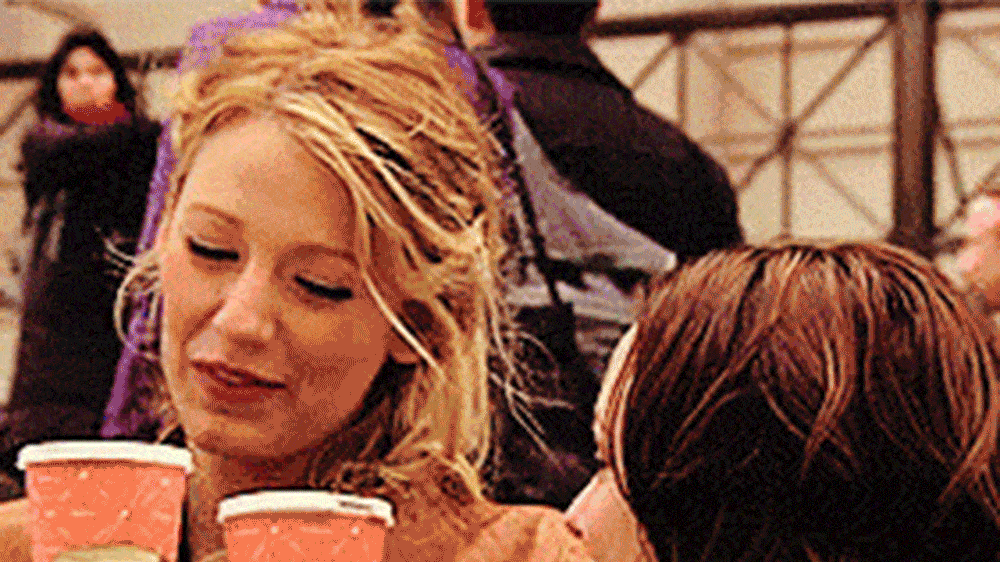Millennials Are Skyrocketing the Demand for Coffee

Giphy
First, we found out that millennials are drinking all the wine. Now, we found out they're sipping down all the coffee too.
The demand for coffee in the U.S. (the world's biggest coffee consumer) has officially reached an all-time high. And now we know why: Millennials (anyone ages 19 to 35) are drinking it all. Despite accounting for just 24 percent of the country's population, millennials make up about 44 percent of the country's coffee demand, according to Chicago-based research firm Datassential, as reported by Bloomberg.
To be fair, millennials are the largest living generation in the U.S. (they still outnumber other generations from a percentage standpoint), but that doesn't mean their coffee obsession is any less potent. In the last eight years, daily coffee consumption among 18- to 24-year-olds rose from 34 percent to 48 percent, and it climbed from 51 percent to 60 percent among 25- to 39-year-olds, according to the National Coffee Association, also reported by Bloomberg. Meanwhile, the number of adults over age 40 who drink coffee daily decreased.
Why are millennials so coffee-crazed? Probably because they started chugging the stuff earlier in life than ever before; younger millennials (born after 1995) started drinking coffee at about 14.7 years old, while older millennials (born closer to 1982), began at the age of 17.1, reports Bloomberg. (Ahem, maybe that is why one-third of Americans aren't getting enough sleep.)
With millennials downing so much of this stuff, we can't help but wonder: What exactly does this mean for your health? We already got the lowdown on whether coffee is bad for you-but is 14 too soon to start sipping lattes?
"The long-term effects of coffee consumption in teens are still largely unknown, but there certainly are potential acute health repercussions which could result from starting a coffee habit at a young age," says Marci Clow, M.S., R.D.N., a nutritionist at Rainbow Light.
First of all, the caffeine in coffee can affect sleep, which is extra important for teens' brain development and growth, and lack of sufficient zzz's can result in impaired function the next day. (Hi, SATs or driver's tests.) Caffeine intake can also either enhance your mood or, in some people, exacerbate feelings of stress and anxiety-which is already common during teen years, says Clow. Translation: Those teenage mood swings can get even more intense.
Obviously, the effects of drinking tons of coffee are worth considering for any age; caffeine has also been shown to increase blood pressure and heart rate and to have a mild diuretic effect, says Clow. Because coffee is a stimulant, which can depress your appetite, drinking too much java could make you want to skip lunch, robbing you of some nutrient-rich food. Or, if you're ordering frappuccinos, you could just be loading up on empty calories.
And what about the addiction? Surely, if you start sooner, you're more likely to get hooked, right? "The majority of the research on caffeine dependence has been conducted in adults, but if you start a habit younger in life you could certainly develop a dependence sooner," says Clow. (Here's how long it takes for your body to start ignoring caffeine.)
"I think people do become physically dependent on caffeine," she says. Ditching your daily cup of java can result in brain fog, irritability, or headaches, which can last for several days, but withdrawal symptoms can be less severe or even worse in some people. "What happens chemically when caffeine is cut out is that the brain is flooded with adenosine and dopamine levels drop, causing an imbalance in brain chemistry and leading to some of the possible withdrawal symptoms."
And although this coffee news isn't too scary for your health, there's something actually unnerving about this overwhelming millennial love for coffee; the increased demand plus unchecked climate change means we're facing a looming coffee shortage. Half of the world's suitable coffee-growing area could be lost by 2050 if climate change stays the course, according to The Climate Institute in Australia, and by 2080, there may not be a single bean left. Yikes. Go grab your coffee in an ice cream cone before you can't anymore.

